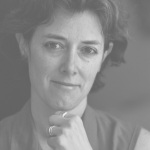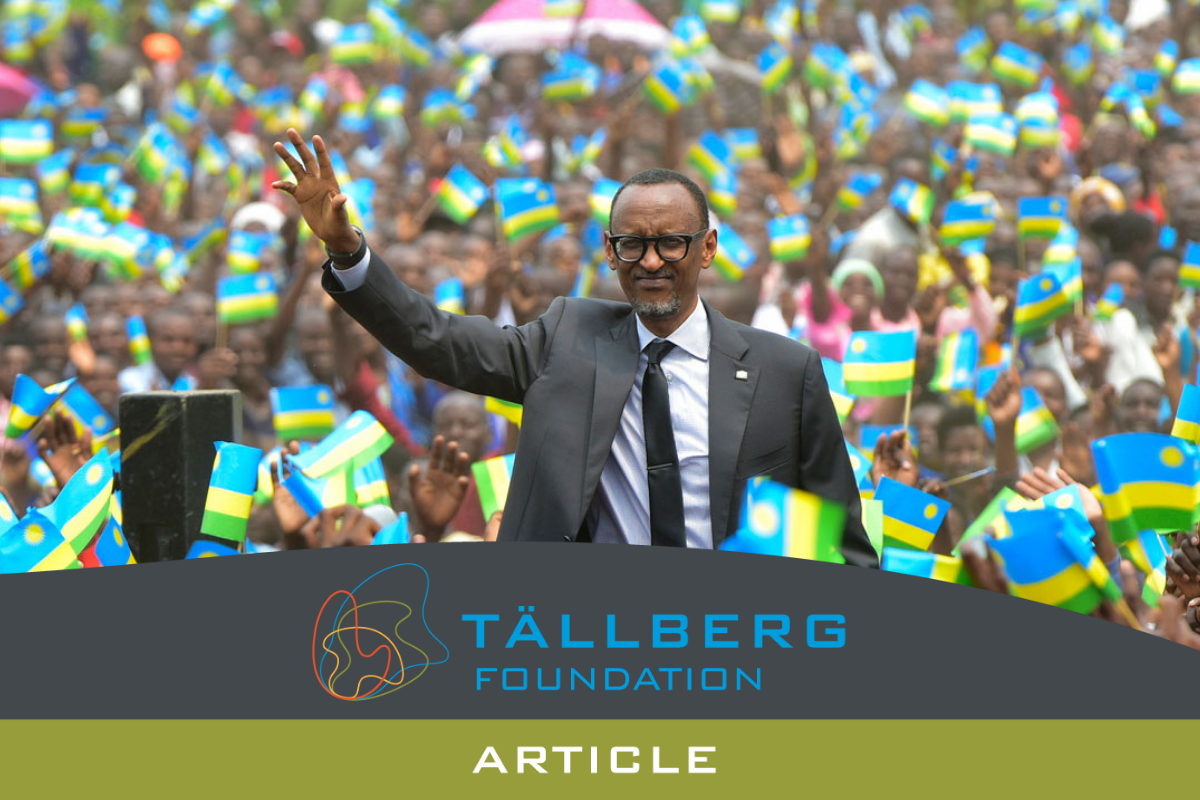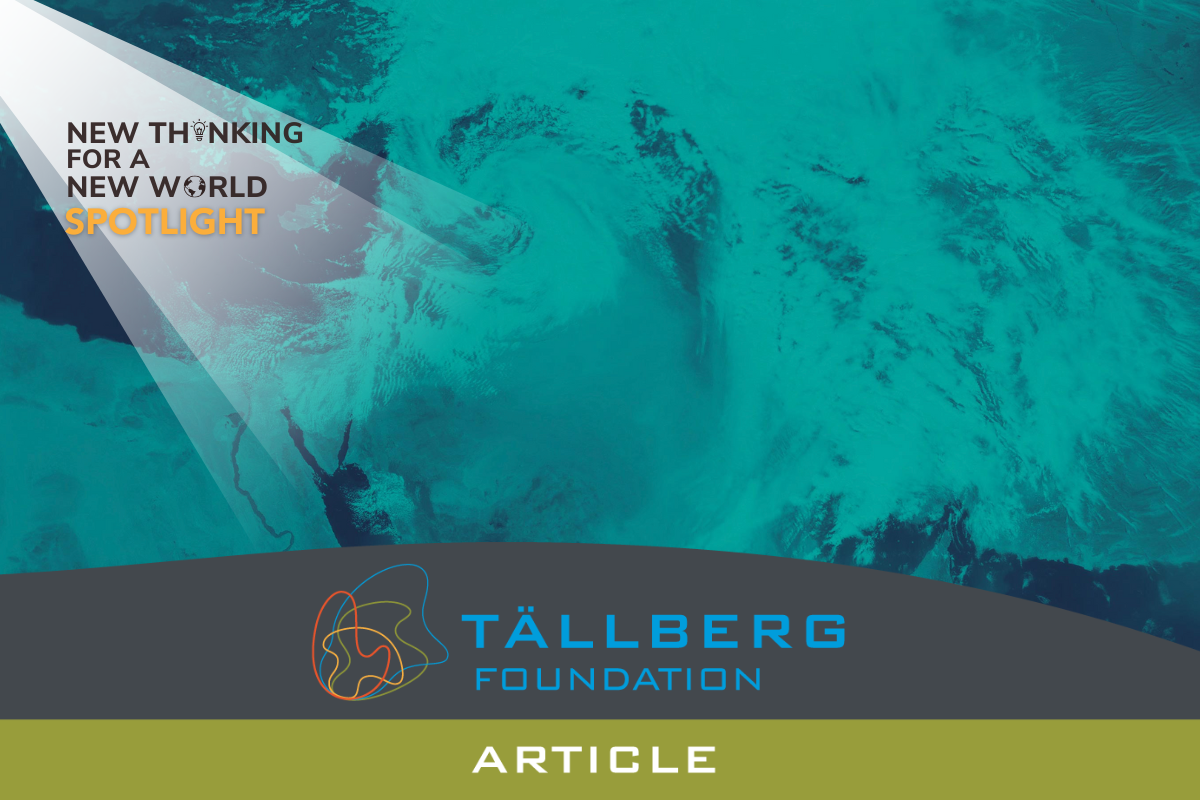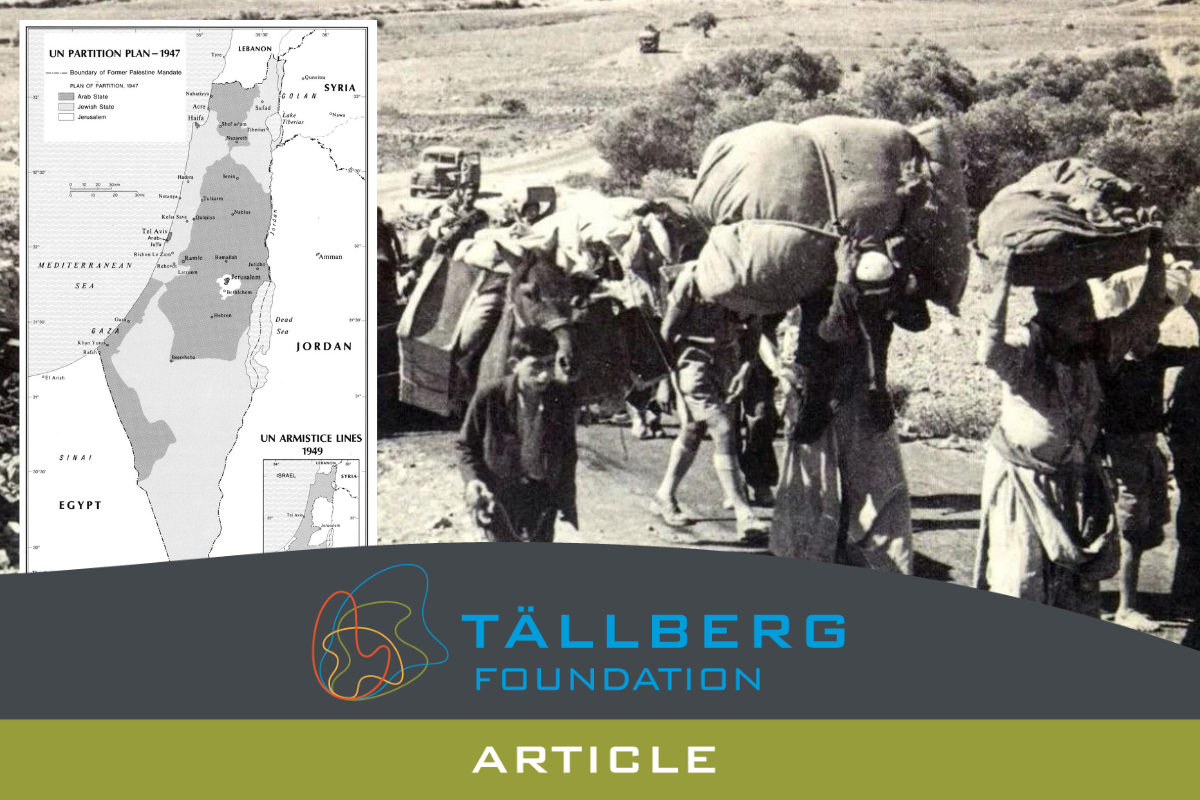“The first draft of history is always going to be very messy.” — Michela Wrong
Human life originated in Africa, and humanity’s future will be intensely African: by 2100 one in three people on earth will live on the continent, including almost half of the young people. How to understand 1.4 billion people, more than 3,000 tribes, at least 2,000 languages, and 55 countries whose realities sometimes seem more like lines on a map than nation states?
Trying to cut through that complexity can produce mirages, of good or of evil. “I’ve been covering Africa since the 1990s, early 1990s,” says Michela Wrong, journalist and author. “I can completely understand that people who’ve worked in development, or diplomats, or policy makers, people who work for NGOs, Africans themselves, first and foremost, want to see the stories come good.” Even, she argues, when the opposite is true.
Her most recent case study is Paul Kagame’s Rwanda—a story she tells in her book, Do Not Disturb (a title that turns out to be very disturbing in the telling). Rwanda is often described as Africa’s Singapore or, perhaps, Israel—the success story of the Great Lakes, still recovering from the hideous genocide of the ‘90s. Wrong, however, describes a much more complicated reality: “Rwanda is often presented as a miracle, and it’s not.”
On the one hand, she says, “It’s a country where aid is well-spent, but it receives an awful lot of aid and it’s a very small country.” The result is that the country stands near the top of African health, education and welfare league tables.
On the other hand, “it goes hand in hand with an extremely repressive and undemocratic system…Elections routinely return Kagame into power with 98.8% of the vote, which is a sort of tally that anywhere else in the world people laugh at and regard it as de facto indication that the vote was rigged…Journalists who were independent and stood up to the government or criticized people in power ended up being chased into exile or were actually killed…and the deliberate systematic program to track down all the dissidents who have fled the country…[to] get them silenced, roughed up, or killed.”
Of course, Rwanda might legitimately be considered a “special” case because of the Hutu slaughter of the Tutsis in 1994, which eventually led to the victory of the Tutsi RPF (Rwanda Patriotic Front) led by Paul Kagame, who has been in power ever since. Kagame, Wrong insists, is a master at playing on Western guilt for not having prevented the genocide; for example, U.S. President Bill Clinton has said that not intervening is one of the biggest regrets of his years in office. That regret, Wrong says, tempers a lot of criticism of the brutal leader Kagame has become.
Nevertheless, “What I find really worrying is that there is so much admiration for what Rwanda has achieved on the development front that there seems to have become a sort of assumption that you have to be an authoritarian ruler to deliver those achievements.”
As Wrong points out, “You often hear said about Kagame. He is a man, a leader who gets things done. I think that becomes very dodgy territory because you’re wishing on African citizens a regime and a style of life and a level of repression that you would never accept in your own country.” Why? Because, she insists, there is a tendency in the international community to say “Don’t hold [Rwanda] up to the same standard as say, Scandinavia, or Denmark, or Norway. This is Africa, this is central Africa. This is a country that came through a genocide. What do you expect?”
That is a fair question: what should we expect from Africa and, in particular, from African democracy? Almost three decades of immersion in Africa has led Wrong to some overarching observations:
- “The longer I spend working on Africa and traveling around in Africa, the more it is borne upon me that the nation state is a fragile and recent arrival in Africa and that ethnic identity holds the key to everything.”
- “I think you have to have a democratic system that caters for those ethnic awareness’ and identities, and allows them to express themselves, and not foist upon these countries as a sort of straight jacket that has suited us okay here in the West, but it doesn’t work in Africa.”
- In practice, that probably means decentralized decision making and resource allocation, but “institutions like the World Bank and like the International Monetary Fund, and for that matter, the United Nations, are all set up around the nation state concept and they want to work through those structures, because that’s what they do.” Give something like the “nationalist federalism” of Ethiopia’s Meles Zenawi a chance, she urges.
- “The other thing that seems not to work at all well in Africa is the first-past-the-post [electoral] system that we have here in Britain. Because that’s a winner-takes-all system and you need a system where smaller groups will get something, some share of the pie.”
In short, Wrong says that “There are changes that can be made and tinkerings that can be done that would give democracy a much better chance of survival.” But, she admits, that would require Western governments, aid institutions and development experts to recognize that Africans need African solutions, but doing so without diluting standards and expectations.
Wrong deeply believes in Africa, in its potential and—above all—in its people. Why else would she have spent most of the past three decades deeply immersed in African realities? Indeed, she learned her journalistic trade in Africa, first with Reuters (“their whole shtick is facts, facts, facts, and more facts and, if you’re going to cite an opinion, you must have a source, and can you prove it?”) and then with the Financial Times. In the process she became one of the most respected Western journalists reporting on the region.
So, what has she learned about the practice of journalism? Wrong is very wary of the “advocacy journalism” that has become popular today where opinions seem to be allowed to shape facts or, at least, the selection of facts that a journalist presents. A good journalist ought to, she says, “include as many viewpoints and as many counter indicative facts” as possible and “look back and realize when we got things wrong. It’s something everyone finds very painful, not just journalists. It’s something nobody really wants to have to question, their opinions and their beliefs. And yet we have to make ourselves do it occasionally.”
For Wrong the journalist, that is incredibly important: “The nature of truth is such a challenging issue. There are so many occasions in my career where I look back and I just, I think, ‘Oh my God, I got it so wrong. Or why didn’t I write this? Or why didn’t I see that?”
Arguably, Africa—including Kagame’s Rwanda—needs journalists like that. In a world of so much dis- and mis-information, we all do.
Let us know what YOU think and comment below
Michela Wrong recently spoke with Alan Stoga as part of the Tällberg Foundation’s “New Thinking for a New World” podcast series. Hear their whole conversation here or find us on a podcast platform of your choice (Apple Podcast, Spotify, Acast, Stitcher, Libsyn, etc).
ABOUT OUR GUEST
 Michela Wrong has spent nearly three decades writing about Africa, first as a Reuters correspondent based in Cote d’Ivoire and former Zaire, and then as the Financial Times Africa correspondent, based in Kenya. From journalism, she moved into book-writing. Previous books include “In the Footsteps of Mr Kurtz”, the story of Mobutu Sese Seko, “I Didn’t do it for You”, focusing on Eritrea, “It’s Our Turn to Eat”, an examination of Kenyan corruption, and “Borderlines”, a novel set in the Horn of Africa. Her latest book, “Do Not Disturb”, is a scathing assessment of the Rwandan Patriotic Front and President Paul Kagame.
Michela Wrong has spent nearly three decades writing about Africa, first as a Reuters correspondent based in Cote d’Ivoire and former Zaire, and then as the Financial Times Africa correspondent, based in Kenya. From journalism, she moved into book-writing. Previous books include “In the Footsteps of Mr Kurtz”, the story of Mobutu Sese Seko, “I Didn’t do it for You”, focusing on Eritrea, “It’s Our Turn to Eat”, an examination of Kenyan corruption, and “Borderlines”, a novel set in the Horn of Africa. Her latest book, “Do Not Disturb”, is a scathing assessment of the Rwandan Patriotic Front and President Paul Kagame.





0 Comments